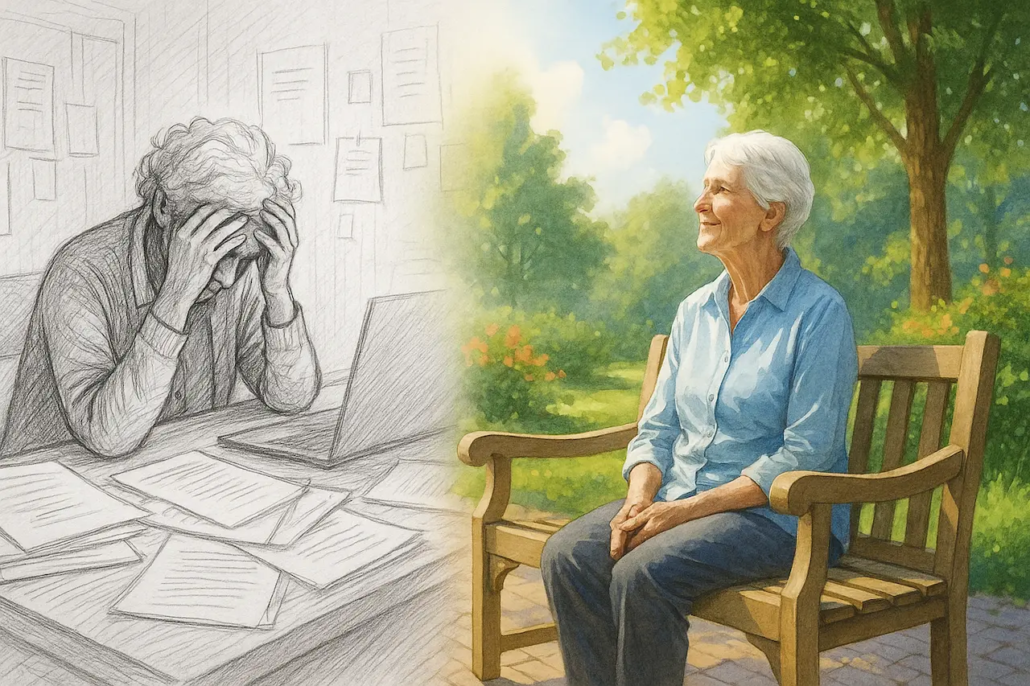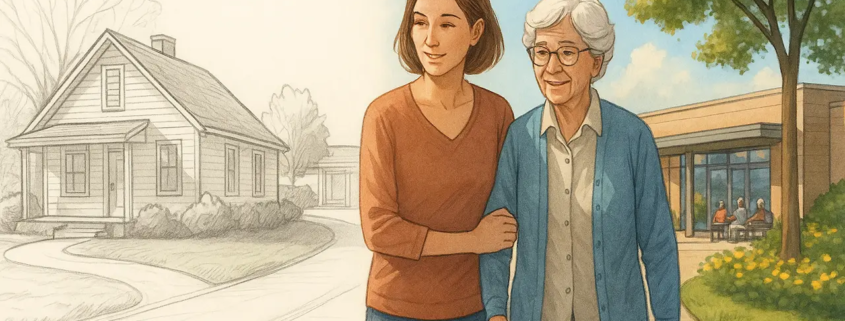If you’re a Gen Xer like me, you probably thought your 50s and 60s would be about balancing retirement planning with maybe helping kids launch into the world. Instead, many of us find ourselves as the “sandwich generation” — squeezed between supporting adult kids and suddenly trying to figure out what’s best for aging parents.
And the truth is, there’s no training course for this. You go from not thinking about senior care at all… to googling “assisted living vs. nursing home” at midnight.
So how do you know if Mom just needs some extra support at home, or if it’s time to consider assisted living? It’s rarely a dramatic, flashing-red-light moment. More often, it’s small signals that add up.
Here are five signs that families often overlook:
1. Safety Concerns at Home
Are there more “close calls” lately — stumbles on the stairs, forgotten stove burners, doors left unlocked? Safety issues are often the first indicator that home is no longer the safest option. If you find yourself lying awake wondering whether your parent is okay alone, that’s a red flag.
2. Nutrition and Meals
A common but subtle shift: dinner plates left untouched, or a diet built around crackers and canned soup. Malnutrition sneaks up quietly. Assisted living solves this in the simplest but most profound way — regular, balanced meals with companionship at the table.

3. Social Isolation
Loneliness isn’t just sad; it’s a health risk. If Mom or Dad goes days without meaningful interaction, or pulls away from hobbies they once loved, it may be time for a community. One family told me their father’s depression lifted almost overnight when he moved into a community where someone said hello to him every morning.
4. Activities of Daily Living (ADLs)
These are the basics: bathing, dressing, toileting, managing medication. If they’ve become a struggle, families often step in — but it can be exhausting and undignified for both sides. Assisted living provides discreet help so your loved one feels supported, not helpless.
5. Emotional Changes
Pay attention to mood: irritability, anxiety, or depression tied to independence loss. Many families assume moving into assisted living will make things worse. In reality, the right support can lift an enormous burden, improving confidence and overall well-being.
Here’s the reframe that helps: Assisted living isn’t about giving up independence. It’s about preserving it — safely. Some residents actually gain freedom because they no longer fear falling, skipping meals, or managing everything alone.
When my father built and ran his senior living community, he used to tell families: “Assisted living is not the end of independence; it’s the restoration of it.” Decades later, I’ve seen that proven true again and again.
At Map of Care, we’ve developed tools to help families weigh these decisions with more clarity. It’s never one-size-fits-all. But when families look at the whole picture, the decision often becomes clearer.
👉 If you’re here, reading this, it means you care enough to notice. And that’s the most loving first step you can take.


